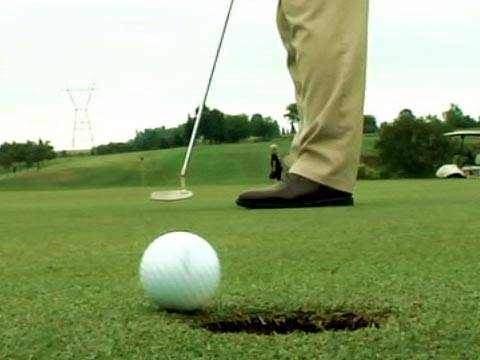
The number one confidence killer for golfers is DOUBT. You simply have to learn how to manage this to keep your confidence at a high level consistently.
Examples of common doubts that golfers have that undermine confidence – do you:
- Wonder about the putter brand or shape being what you should be playing with?
- Doubt your read as you stand over the putt?
- Think about missing your shot before you pull the club away?
- Doubt if you stack up to the competition?
- Question if your practice was good enough to shoot a good score?
By lacking confidence it causes you to question your abilities and destroys your trust in your golf game.
When you lack confidence, fear of mistakes becomes a bigger challenge too. And when you do make mistakes, a negative cycle begins that further hurts your confidence and often can carry over to the next round.
Golf confidence is:
1. How strongly you believe in your skills to execute a good shot.
- You could be the most skilled golfer in the world but without confidence, you will not be able to play to the level of your capabilities.
2. Golf confidence helps you with a strong mental game including your ability to bounce back after a poor shot.
3. Golf confidence keeps you positive, emotionally in control, and focused despite your circumstances.
- When you are confident in your golf game and even your work, you approach challenges with excitement and view them as opportunities to improve your game and work…
- Now the difficult shots and pressure situations become a fun game instead of life-or-death.
4. Golf confidence gives purpose to your training and preparation and a positive mental attitude.
- The first step in having higher confidence is to address the number one confidence killer: self-doubt.
So how do you overcome self-doubt?
1. Record your top doubts after a tournament or week of play. Write them down just as you were thinking, such as “I can’t control my shots in a strong wind.”
2. Reframe each doubt. This means changing the doubt into a statement of confidence. What would a positive coach say to you if he heard you verbalize that doubt?
3. When you notice doubts, stop and use your reframes–so your doubts do not fester into lower confidence.
REMEMBER:
“Competency is the ability to dance during breakdown” (c) “Relax, focus, commit, execute” (c) “Change your Conversation”(c) – Dr. Barry Lotz
Acknowledgement to my mentor – Dr. Patrick Cohn

